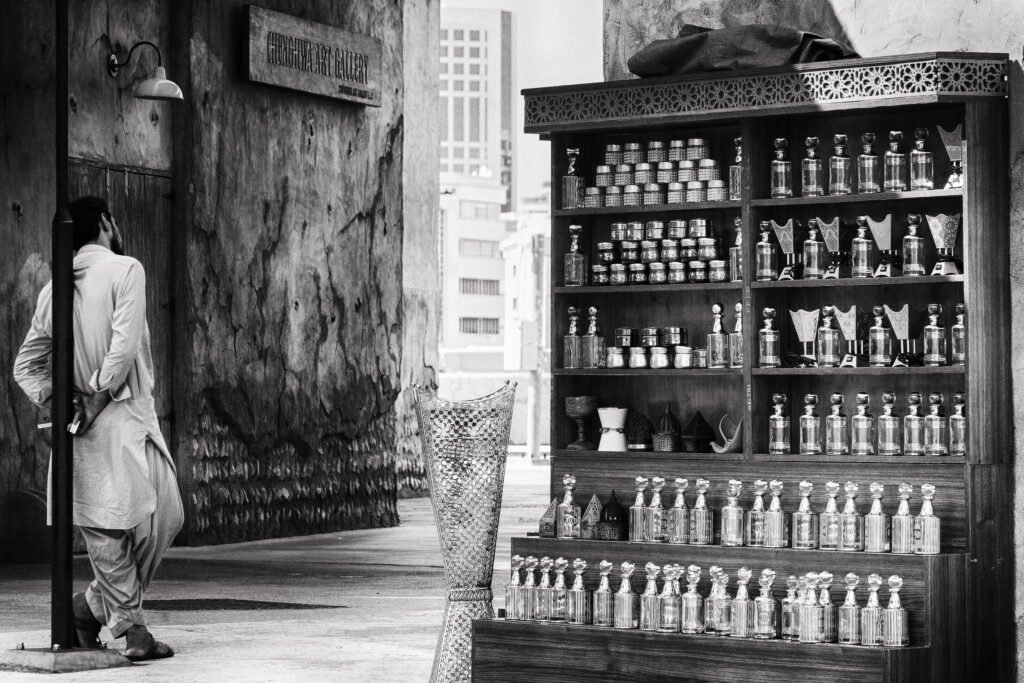
In the labyrinth of Al Seef, where old Dubai dresses itself in wind towers and coral stone facades, and the scent of oud clings to the morning breeze, a man tends his stall of golden jars and bottles, lined like tiny treasures under the desert sun.
He is in his late twenties, maybe early thirties. Dark eyes, steady hands. A cream-colored kandura hangs loose on his frame, and a checkered keffiyeh shields his brow from the heat. But his gaze—sharp, calm, practiced—never misses a passerby. The jars glint like small suns: filigreed lids, hammered brass,
some no bigger than a date pit, others tall as a forearm. Each one filled with rose oil, saffron strands, frankincense resin, or nothing at all—just a vessel for the idea of old Arabia.
“Handmade,” he says, gently lifting a bottle shaped like a minaret. “For perfume. For memory. For your shelf.”
Tourists pass in linen and sunglasses. Some pause, attracted by the glow. Others just glance, phones raised, chasing their next Instagram post. He doesn’t push. He waits. Like the sea nearby, always moving but never chasing. A little girl tugs at her mother’s sleeve. He kneels, shows her a tiny camel-shaped bottle, unscrews the lid, lets her smell the cardamom oil inside. She giggles. The mother buys two.
Behind him, the call to prayer echoes off the creek, mingling with the clink of abra boats and the low hum of tourists bartering for scarves. And still, he stands—amid gold glass and fading light, a keeper of trinkets and time, selling more than souvenirs—selling the shimmer of a story you can hold in your palm.